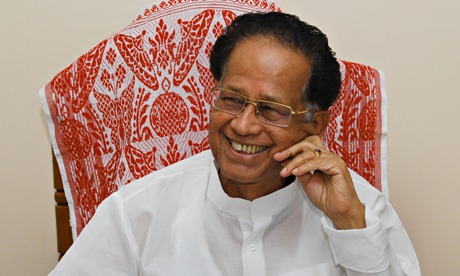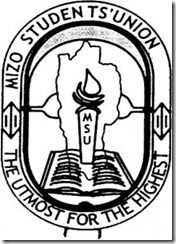Luxury footwear designer Filafi Fithu from Nagaland believes that fashion comes naturally to most people in the northeast as it is intrinsic to the culture of the region.
"In northeast, fashion is something that you grow up with. It's like
something that is engraved deep within the culture itself. Especially
the youth like to stay trendy and love to express themselves through
fashion. In the region, you don't necessarily have to be a stylist or a
fashion designer to be well dressed... it just comes naturally," Fithu,
30, who launched her label FilaFi Fithu here in October 2013, said in an email interaction.
 She believes that the northeastern market has a great potential for luxury products.
She believes that the northeastern market has a great potential for luxury products.
"I know many people who personally get their luxury requirements fulfilled through distant cousins staying abroad or from their peers staying in other cities of India," said the designer whose footwear designed for women are priced from Rs.6,000 onwards.
Targeting women with a certain level of spending capacity, she wants to open more stores in the country and abroad.
"Delhi is the perfect platform for anybody planning to go global. I do want to do it in my home state and northeast as well in the future. I feel that people from northeast in general have great taste and aesthetic sense and they can well afford it too. It's just that I need a bigger audience," said Fithu, who also introduced a line called t-r-e-n-d-z available from Rs.3,000 upwards.
Designed by Fithu, the shoes apart from t-r-e-n-d-z line are manufactured at Calzaturificio Taboo Line di Romeo Giuseppina at Vigevano in Italy. The company is known for its impeccable quality Italian leather and workmanship, just what she wanted.
"It will make a great sense to sell it in Europe because my shoes are manufactured there and they can relate with women from any country. We are working on opening store in Romania. Hopefully, it will happen sometime early next year," she said.
The alumnus of Central Footwear Training Institute, Agra has also designed footwear for forthcoming Italian drama fiction "Luomo Volante" starring Adelmo Togliani and Bianca Guaccero.
As her label is just a few months old, her eyes are set now on promotional activities.
"Well, since my brand is comparatively new as of now, I am open to all sorts of opportunities of promoting my brand. I will be starting out with advertising my brand at suitable platforms that will give it the sort of publicity I am looking for. Fashion weeks are also an option," she said.
The designer, who left a stable government job to join the fashion industry, believes her choice of profession has a great scope. The history graduate cleared the Nagaland Public Service Commission Examination and got a government job.
"I worked there for many years, but ultimately decided to quit and pursue my ultimate dream because I prefer being my own person. It has a great scope because the demand for footwear only keeps increasing. The global footwear market was worth $185.2 billion in 2011 and is expected to reach $211.5 billion in 2018," said Fithu.
 She believes that the northeastern market has a great potential for luxury products.
She believes that the northeastern market has a great potential for luxury products."I know many people who personally get their luxury requirements fulfilled through distant cousins staying abroad or from their peers staying in other cities of India," said the designer whose footwear designed for women are priced from Rs.6,000 onwards.
Targeting women with a certain level of spending capacity, she wants to open more stores in the country and abroad.
"Delhi is the perfect platform for anybody planning to go global. I do want to do it in my home state and northeast as well in the future. I feel that people from northeast in general have great taste and aesthetic sense and they can well afford it too. It's just that I need a bigger audience," said Fithu, who also introduced a line called t-r-e-n-d-z available from Rs.3,000 upwards.
Designed by Fithu, the shoes apart from t-r-e-n-d-z line are manufactured at Calzaturificio Taboo Line di Romeo Giuseppina at Vigevano in Italy. The company is known for its impeccable quality Italian leather and workmanship, just what she wanted.
"It will make a great sense to sell it in Europe because my shoes are manufactured there and they can relate with women from any country. We are working on opening store in Romania. Hopefully, it will happen sometime early next year," she said.
The alumnus of Central Footwear Training Institute, Agra has also designed footwear for forthcoming Italian drama fiction "Luomo Volante" starring Adelmo Togliani and Bianca Guaccero.
As her label is just a few months old, her eyes are set now on promotional activities.
"Well, since my brand is comparatively new as of now, I am open to all sorts of opportunities of promoting my brand. I will be starting out with advertising my brand at suitable platforms that will give it the sort of publicity I am looking for. Fashion weeks are also an option," she said.
The designer, who left a stable government job to join the fashion industry, believes her choice of profession has a great scope. The history graduate cleared the Nagaland Public Service Commission Examination and got a government job.
"I worked there for many years, but ultimately decided to quit and pursue my ultimate dream because I prefer being my own person. It has a great scope because the demand for footwear only keeps increasing. The global footwear market was worth $185.2 billion in 2011 and is expected to reach $211.5 billion in 2018," said Fithu.










